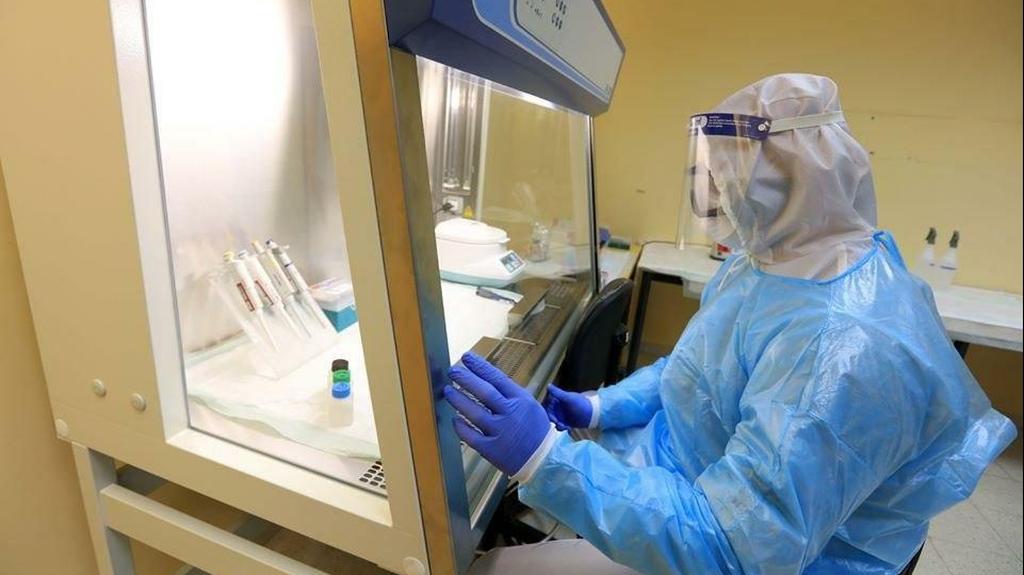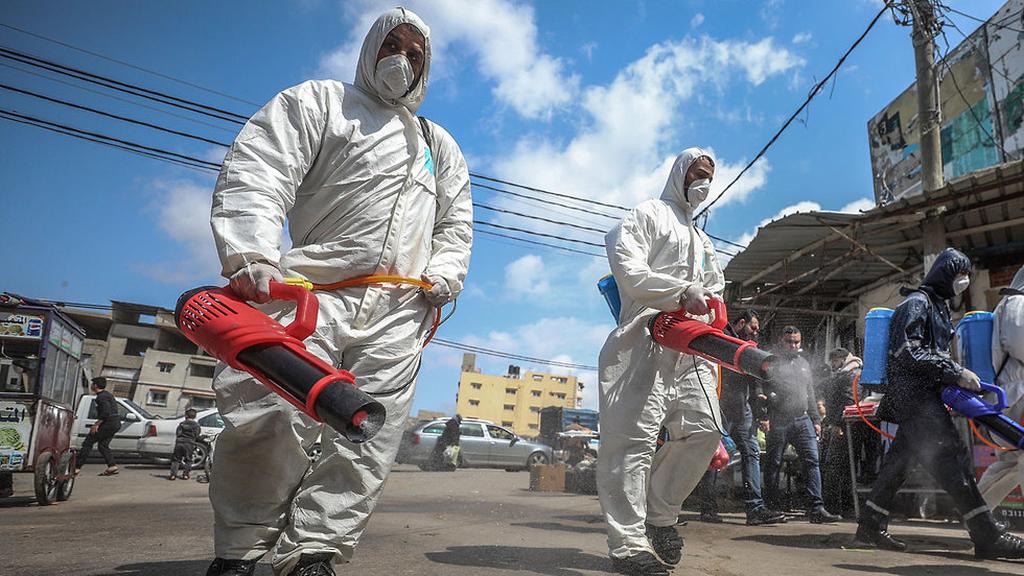Getting your Trinity Audio player ready...
A month and a half after the start of the coronavirus outbreak within its borders, it is safe to assume, for now at least, that the Palestinian Authority has succeeded containing the epidemic.
The number of confirmed Palestinian cases in the West Bank stands at 309, with at least 115 confirmed cases in the Palestinian neighborhoods of East Jerusalem.
The number of confirmed cases in the Gaza Strip had by Monday remained nearly unchanged for over two weeks, until Sunday went it rose from 13 to 15 infections.
Three Palestinians have died so far from the virus, two in the West Bank and one in East Jerusalem.
The most serious virus infection hot spots are currently East Jerusalem, followed by Ramallah with 68 confirmed cases and Bethlehem with 57 cases.
Hebron has also seen a higher infection rate than other areas in the PA, but so far has only 34 confirmed cases.
5 View gallery
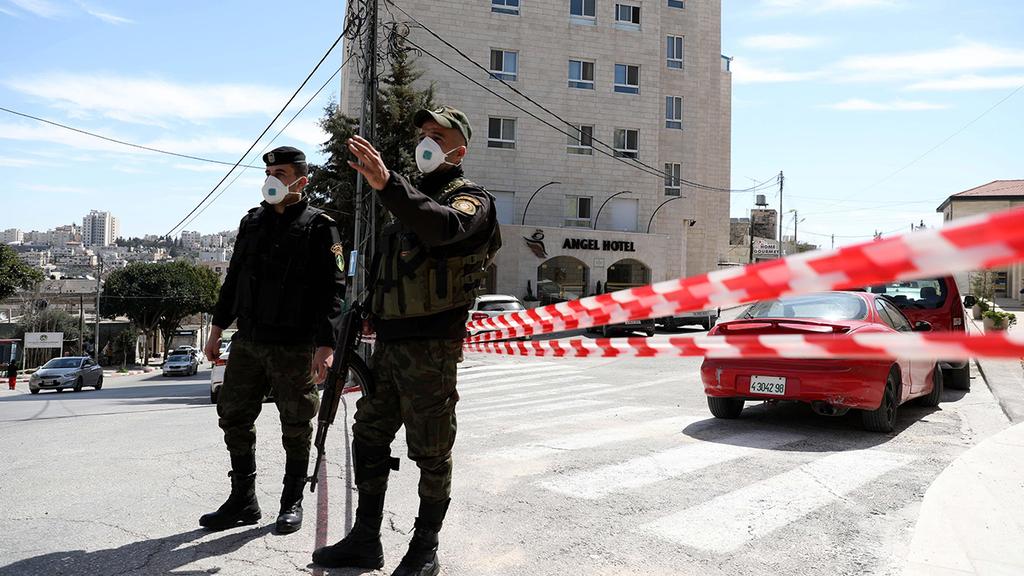

Palestinian security forces lock down parts of Bethlehem during the coronavirus outbreak
(Photo: EPA)
So far, 69 Palestinians have recovered from the virus- 60 in the West Bank and 9 in the Gaza Strip.
The majority of those infected with the virus in the PA territories are aged 18-29 years. There are only 23 patients who are considered to be in a "risk group" due to being older than 60.
Shortage of tests
Since the beginning of the outbreak, the Palestinians have conducted only 21,000 tests. Most were done in the West Bank, with only 2,700 in the Gaza Strip - a dangerously low number considering some 4 million Palestinians live in the West Bank and Gaza Strip.
5 View gallery
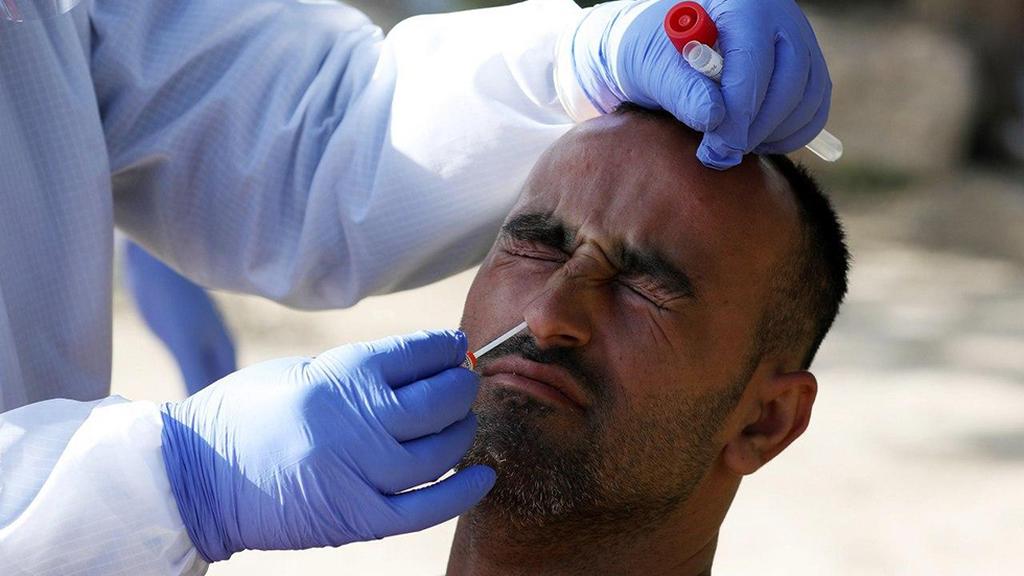

A Palestinian worker being tested upon returning to the West Bank from Israel
(Photo: EPA)
The low numbers likely stem from a lack of test kits and available labs to analyze the results. In the West Bank there are only five labs to handle all of the tests from Jenin, Hebron, Ramallah, Bethlehem and Nabulus.
The lack of test kits is a global problem and the Palestinians have struggled to to acquire them. A fresh batch of tests from the World Health Organization was set to arrive in the PA in the coming days.
Despite the global race for medical equipment and protective clothing, the Palestinians have received help from various sources and nations.
The WHO delivered a shipment of medical equipment to the PA through Jordan, with some of the equipment set to the Gaza Strip.
In addition, the organization also sent several medical advisers to Gaza in order to assist Hamas in properly fighting the virus.
WHO has also held a meeting last week of 20 diplomats in order to organize the needs and demands of the Palestinian Authority in its fight against the virus.
The World Bank and the European Union have both given a grant of $15 million to the Palestinian Authority to assist I all its needs against the virus.
Qatar has been the most prominent nation when it comes to assisting the Palestinians, mainly in the Gaza Strip with money and food.
Turkey has also sent medical aid to both the PA and the Gaza Strip.
Israel's assistance to the Palestinians has mainly been under the guise of Finance Minister Moshe Kahlon, who met in March with Palestinian ministers and even granted NIS 120 million in PA tax money frozen by Israel.
Last week, Kahlon met with UN Envoy to the Middle East Nickolay Mladenov to discuss the continued support to the Palestinians during the epidemic.
Defense Minister Naftali Bennet and IDF Chief Aviv Kochavi, aware of the danger of an uncontrolled outbreak in the West Bank and the Gaza Strip, authorized an assistance package to the Palestinians in the form of protective and medical gear and even sent test kits to Gaza.
The Palestinians had prepared well for an outbreak. In the West Bank, 16 quarantine centers were authorized, most of them hosting returnees from abroad and workers returning from Israel.
5 View gallery
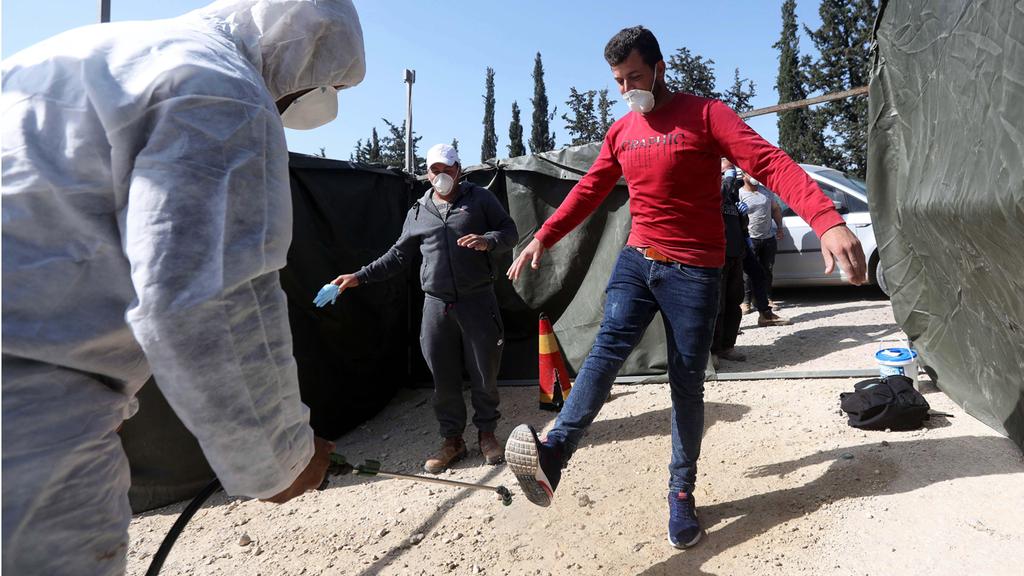

A Palestinian worker who returned from Israel being disinfected by a medical worker
(Photo: EPA)
In addition, 13 medical centers were turned into special coronavirus treatment facilities. In refugee camps throughout the West Bank, communal quarantine centers were constructed.
In the Gaza Strip, 24 quarantine centers were authorized, using schools, motels and hotels. Anyone returning via Egypt at the border crossing at Rafah were ordered to enter an extended quarantine period of 21 days.
Despite these preparations, both territories have scant medical facilities. The West Bank currently has just 213 available hospital beds with ventilators and in the Gaza Strip there are only two medical centers capable of treating coronavirus patients and just 87 hospital beds with ventilators.


